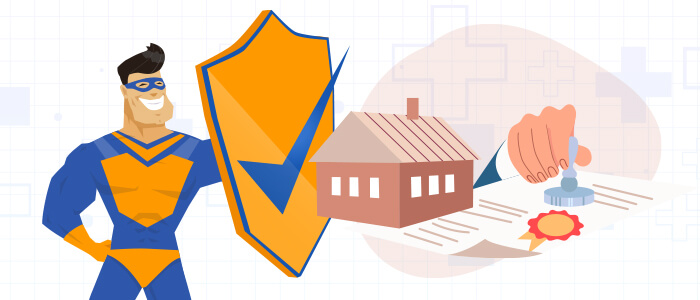Mortgage: How to finance your own home
The mortgage is the debt capital used to purchase a house, land or other type of property, with the property itself serving as collateral. There are different types of mortgages, such as fixed-rate mortgages, Saron mortgages and variable mortgages that adjust to market conditions.
A mortgage requires equity of at least 20% of the purchase price in Switzerland. The ability to make the monthly mortgage payments is called affordability and should usually not exceed one-third of gross income.
The first mortgage covers up to 66.6% of the loan-to-value of the property, while the second mortgage covers the remaining amount up to 80%. The interest that has to be paid on the loan is called mortgage interest.
One should compare mortgage rates and terms from different banks, take into account the type of mortgage and possibly consult a mortgage specialist or independent advisor to find the right mortgage.
There are different ways to repay a mortgage, such as annuity loans, amortising loans, individual repayment plans and early repayment.

What is a mortgage?
A mortgage is a long-term loan from a bank or other financial institution to finance the purchase of land or property. The property itself serves as collateral for the loan. In case of default, the bank can sell the property to recover the outstanding debt.
What types of mortgages are there?
There are different types of mortgages, which differ in terms of interest rate structure and adjustment:
Fixed-rate mortgage
With a fixed-rate mortgage, a fixed interest rate is agreed for the entire term of the loan. The fixed-rate mortgage offers the borrower planning security, as the monthly instalments are constant.
Saron mortgage
The Saron mortgage is a type of variable mortgage where the interest rate adjusts to the Swiss Average Rate Overnight (SARON). This interest rate can fluctuate daily, resulting in a higher or lower interest charge.
Libor mortgage
The Libor mortgage is another type of variable mortgage based on the London Interbank Offered Rate (LIBOR). However, this rate is no longer used and has been replaced by the SARON.
Variable mortgage
With a variable mortgage, the interest rate regularly adjusts to current market conditions. This means that the monthly instalments of the variable mortgage can rise or fall.
How much equity do I need for a mortgage?
You need at least 20% of the purchase price of a property as equity for the mortgage. This means that if you want to buy a property worth CHF 500,000, you need to put up at least CHF 100,000 (20%) as equity, while the bank would provide the remaining CHF 400,000 (80%) as a mortgage.
Loan-To-Value Ratio
Loan-To-Value Ratio is that at least 20% of the purchase price of a property must be contributed as equity. The remaining 80% can be financed by the mortgage.
Affordability
Affordability refers to whether the borrower is able to afford the monthly mortgage payments. As a rule, the annual burden of interest, amortisation and ancillary costs should not exceed one third of gross income.
How do the first and second mortgages work?
The first mortgage usually covers up to 66.6% of the loan-to-value of the property, while the second mortgage covers the remaining amount up to 80%. The first mortgage usually has a lower interest rate, while the second mortgage has a higher interest rate. The main reason for this distinction is that the first mortgage is considered less risky than the second mortgage because in case of default, the bank reclaims the first mortgage first.
What is the mortgage interest rate?
The mortgage interest rate is the interest rate that borrowers have to pay the bank or financial institution for the money they borrow. The interest rate can be fixed or variable, depending on the type of mortgage chosen.
How much do I have to earn to get a mortgage?
As a rule, the annual burden of interest, amortisation and ancillary costs should not exceed one third of your gross income. To get a mortgage, your income must be sufficient to meet these requirements. The exact requirements may vary depending on the bank and individual circumstances.
How do I find the right mortgage?
To find the right mortgage, you should consider several aspects:
- Compare mortgage rates and conditions from different banks and financial institutions.
- Consider which type of mortgage (fixed mortgage, variable mortgage, Saron mortgage, etc.) best suits your needs and risk tolerance.
- Consult a mortgage specialist or an
independent advisor to analyse your individual needs and circumstances and make the best possible decision.
What options do I have to repay the mortgage?
There are several ways to repay a mortgage:
- Annuity loan
With this method, you pay monthly instalments consisting of interest and part of the loan amount (amortisation). The amount of the instalments remains the same throughout the term and the mortgage is repaid in full at the end of the term.
- Amortisation loan
With an amortising loan, you only pay the interest during the term. The loan amount is repaid in a single payment at the end of the term. This method can be combined with a savings plan or life insurance to ensure repayment.
- Individual repayment plans
Some banks offer customised repayment plans tailored to your specific needs. In such cases, the monthly instalments and the term of the mortgage can be individually adjusted.
- Early repayment
If you have sufficient financial resources, you can repay your mortgage early. In this case, you may have to pay an early repayment fee to the bank, especially for fixed-rate mortgages.
